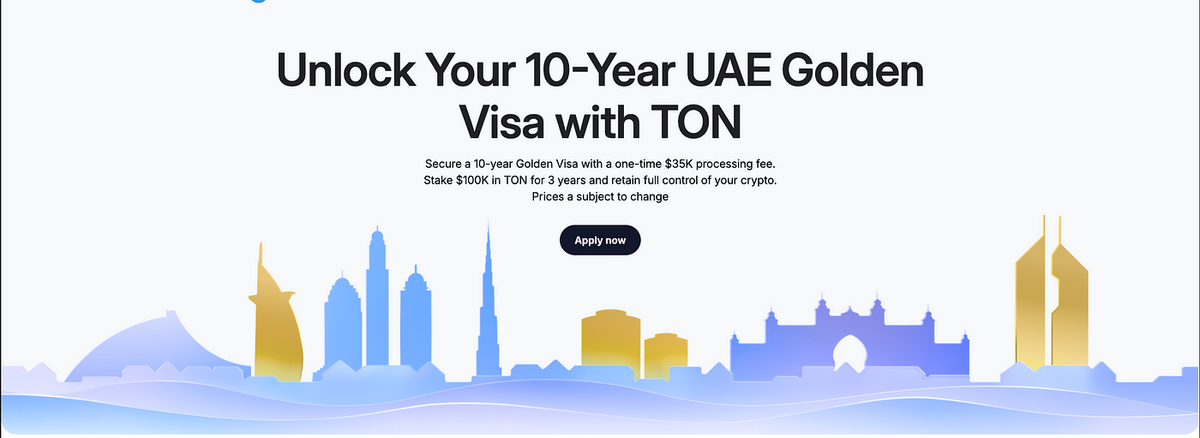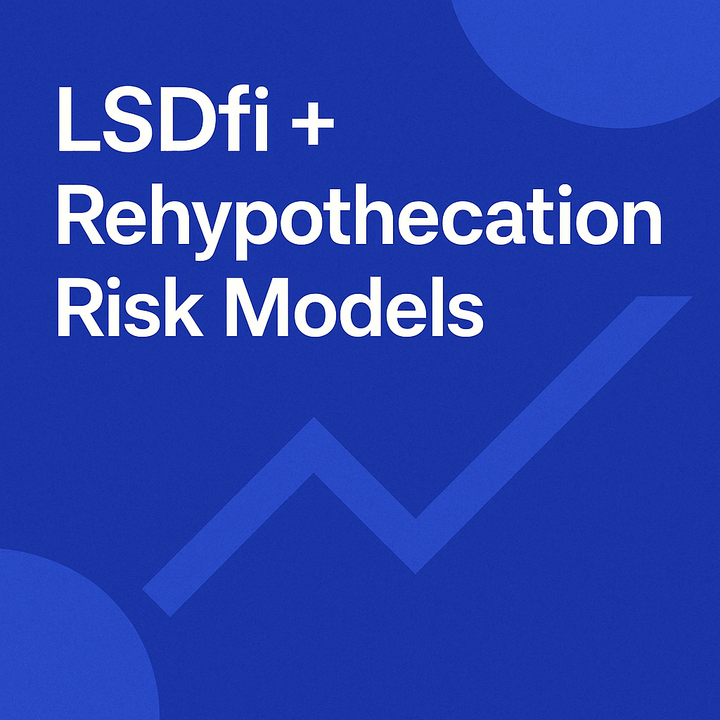Golden Visa via TON: A New Era of Crypto Migration?

Introduction:
A groundbreaking initiative has emerged at the intersection of cryptocurrency and global mobility. The Open Network (TON) recently announced a program offering long-term residency in the United Arab Emirates – a "Golden Visa" – in exchange for a crypto investment. This bold move raises important questions about tokenized residency, its legal and economic implications for roaming crypto entrepreneurs, and whether it signals a larger trend of nations courting Web3 talent.
Tokenized Residency: How the TON Investment Model Works
TON’s proposal essentially tokenizes the concept of residency. Under the scheme, an applicant stakes $100,000 worth of Toncoin on the TON blockchain for a three-year lock-up period. The staking is done via a transparent smart contract, meaning the investor retains full custody of their funds while meeting the program’s criteria. In addition to the crypto stake, there’s a one-time processing fee of $35,000 for the visa application. In return, successful applicants (and their immediate family members) are to receive a 10-year UAE Golden Visa, allowing them to live, work, and invest in the country. Notably, the process was touted to be fast – potentially under two months – which is much quicker than traditional residency investment routes.
This model dramatically lowers the typical barrier to a UAE Golden Visa. Traditionally, gaining long-term residency in the Emirates might require purchasing real estate or other assets worth over $500,000, or establishing large businesses – often illiquid commitments. By contrast, the TON approach asks for a relatively lower outlay in crypto that remains liquid (the Toncoin stake can even earn a yield of ~3-4% annually during lock-up). After three years, the staked coins are unlocked regardless of market conditions, returning control to the holder. In essence, TON’s program reframes residency-by-investment as a staking exercise, leveraging blockchain to increase transparency and efficiency. It’s the first instance of a blockchain project directly facilitating a residency visa, and it captured the imagination of many global crypto nomads.
Legal and Economic Implications for Crypto Nomads
The promise of a “Golden Visa via TON” carries significant legal and economic considerations. On one hand, it could be a boon for crypto nomads – professionals and investors who prefer a flexible lifestyle across borders. If such a visa path is viable, it offers them a new option to establish a base in a crypto-friendly jurisdiction without having to convert crypto assets into property or cash. It signals a possible future where digital asset holdings can translate into real-world privileges, like residency rights. Economically, this could attract capital into the country’s tech sector and bolster its reputation as a forward-thinking hub. Crypto investors are often high net-worth individuals or entrepreneurs; their presence can lead to new businesses, jobs, and innovation in the host country.
However, there are legal gray areas to navigate. The UAE authorities swiftly clarified that no official policy ties crypto staking to Golden Visa eligibility yet – highlighting that all visas must meet established government criteria. This indicates that TON’s program, while innovative, operates in parallel to official channels and not through a government-sanctioned crypto category. Essentially, TON is coordinating an investment and visa application on behalf of applicants, but regulators stressed that blockchain investments are not an approved visa pathway. This caution serves to protect applicants from misunderstanding the offer’s nature – it’s an initiative by a private foundation rather than a state-guaranteed deal. For crypto nomads, this means due diligence is crucial. They must ensure any such program aligns with local laws and that they still meet the standard requirements (for example, perhaps TON’s $100k stake is effectively being used as proof of funds or investment under an existing category like business investment).
The legal spotlight here underscores a broader point: while crypto-focused residency programs could become a trend, they will likely require close collaboration with regulators to succeed. Countries will want to maintain control over immigration criteria, even as they experiment with attracting crypto wealth. The TON case shows both the enthusiasm for innovation and the need for clear government buy-in. Until that happens, any crypto visa scheme remains somewhat experimental. Nomads enticed by such offers should consider the economic upside (ease of entry, potential yield on staked funds, living in a tax-friendly country) against possible risks (regulatory changes or the program being discontinued if not officially supported).
UAE as the New Crypto Hub Impact on Web3 Migration
Regardless of the immediate outcome of TON’s visa offer, the spotlight has once again turned to the UAE as a burgeoning crypto hub. In recent years, Dubai and Abu Dhabi have actively positioned themselves as welcoming centers for blockchain businesses and Web3 talent. They’ve rolled out progressive regulations (such as clear licensing frameworks for crypto exchanges and ICOs), launched free zones dedicated to virtual assets, and even implemented tax incentives (like exempting crypto transactions from VAT). Major crypto companies – from exchanges like Binance and Crypto.com to countless startups – have flocked to the UAE to capitalize on this supportive environment.
The idea of a crypto Golden Visa, even if not officially endorsed, feeds into this narrative. It suggests the UAE could become a magnet for crypto migration, where entrepreneurs see not only business opportunity but also a place to settle with family under favorable conditions. If indeed such residency-by-staking models mature (in the UAE or elsewhere), it might spark a Web3 talent migration comparable to how tech entrepreneurs gravitated to Silicon Valley in past decades. Talented developers, investors, and innovators might congregate in hubs that offer both lifestyle and regulatory clarity for crypto activities. This concentration can create a virtuous cycle: more talent draws more investment, which spurs more infrastructure and acceptance. The UAE’s mix of modern amenities, strategic location, and pro-innovation stance already makes it attractive – a tailored visa for crypto holders would supercharge that appeal.
It’s also worth noting the competitive angle: other countries may feel pressure to not miss out. If the UAE (or any jurisdiction) were seen truly granting residencies in exchange for crypto stakes, other tech-forward nations might draft their own versions to lure wealthy crypto individuals. This could lead to a new era of “crypto migration policies,” reminiscent of how nations compete for foreign investment by offering citizenship or tax breaks. For now, the TON Golden Visa is more of a concept than a fully government-backed program. But concept alone has been powerful – it sparked widespread discussion and showed that the crypto community is eager for real-world bridges. The coming years will reveal if this is an outlier or the start of a trend where one’s blockchain investments can help open literal doors around the world.
Conclusion:
“Golden Visa via TON” encapsulates both the exciting possibilities and the current limitations of merging crypto with national policy. It presents a visionary model: a world where staking tokens could grant you residency, blending digital asset investment with global mobility. The swift reaction from UAE regulators also reminds us that such innovations must align with existing frameworks. Nonetheless, the initiative highlights the ever-growing influence of crypto wealth in the real world. For Web3 professionals eyeing a base in a crypto-friendly locale, the UAE remains highly attractive – and programs like TON’s, even if unofficial, indicate that new pathways are being imagined. A new era of crypto migration may be dawning, one that will evolve as regulators and innovators find common ground to turn these early experiments into official opportunities.


Comments ()